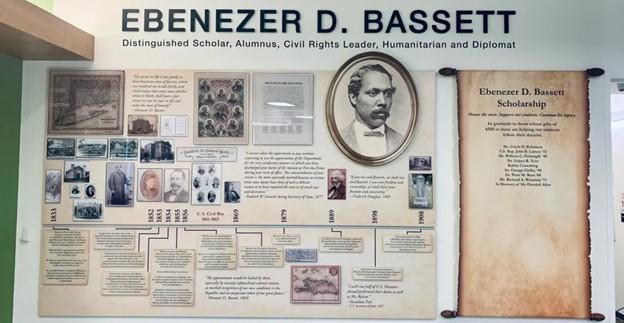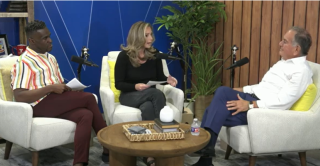
Central to Exploring the Past.
Expand your employment opportunities with a Central MA in History. Pursue your passion as you prepare to teach history, earn a law degree, work for a non-profit, or delve deeper into historical study and research. Engage with a solid and rigorous experience in professional historical thinking and writing.
Program Features
- Starts every January and August
- 30-credit program
- Attend full- or part-time
- Late afternoon/evening classes on-campus
- Flexible program allows you to complete regular assignments, conduct research, and make progress toward your degree while working full-time
- Emphasis on professionalization of content knowledge and communication skills
- Engage with professors who are scholars in their field and who actively participate in ongoing historical research and publishing
- Learn to develop and effectively present historical arguments using primary and secondary sources both orally and in writing
- Graduate experience tailored to your interests
- Small class sizes
- Financial aid is available
- No GMAT/GRE required
Convenience
The MA in History at Central is convenient and flexible in order to accommodate working professionals. Many of our students are K-12 teachers. Some wish to pursue a PhD. Others are looking to enrich their knowledge. All graduate courses are held at 4:30 p.m., 1 day per week.
- Students can attend full-time (9 credits) or part-time (3 or 6 credits). They can change status or number of courses to accommodate changing life events.
- Full-time students can complete the program in 1 ½ years with a summer course (often online) or independent study.
- Part-time students have 6 years to finish with the possibility of an extension.
- Final projects in courses and capstone theses are flexible and can include formal papers, projects, or lesson plans.
- Students can begin the program in Fall or Spring. Applications due: Aug 1 or Jan 15.
Community
An MA in History at Central has advantages that many other quicker or virtual programs do not. Because most of our courses are held in person on campus, students become part of a community of scholars that will stay in touch and help them for years.
- They will get to know other students who are teachers, public historians, or professionals with whom they can share their experiences and expertise.
- They work with numerous faculty members inside and outside class. Two faculty advisors (one for the program and one for their capstone thesis) meet them on a regular basis and create a program to suit their individual needs.
- Faculty get to know students well enough to write convincing letters of recommendation for jobs, programs, and scholarships, and use their professional networks to advance student careers. They provide one-on-one feedback to help perfect writing skills or writing samples
Quality
Students in the MA in History at Central study with faculty members who have PhDs from top universities and are active researchers and scholars, as well as teachers. They continuously publish articles and books.
- Because our faculty are experts in their fields, students know that they will get the most up-to date knowledge and skills of historians.
- Students can be confident in applying the content they learn in the MA program to their own professions. As teachers, they will have new historical interpretations and material to introduce into their classes. This content also will help students succeed in a PhD program or a consultant job if they choose those career paths.
- Our faculty also introduce students to innovative historical methods and skills that can be applied widely. They learn the latest ways to interpret written primary sources, as well as material and visual artifacts. They can learn skills of digital history, game design and pedagogy, or geographical mapping.
When you join the MA program in History at Central you become part of a community of top-quality scholars. You get personal attention and a program tailored to your individual needs.

Faculty Research Interests
World History
- Jay Bergman, PhD. Yale, Russia, Europe
- Gloria Emeagwali, PhD Ahmadu Bello, African Studies
- Tyler Kynn, PhD Yale, Islamic World, Digital History,
- Abigail Sargent-Loy, PhD Princeton, Medieval Europe, Environmental History
Game Studies
- Mark Jones, PhD Columbia, Japan, Childhood, Emotions
- Mary Ann Mahony, PhD Yale, Latin America, Brazil
- Louise B. Williams, PhD Columbia, Imperialism, Britain
United States History
- Juan Coronado, PhD Texas Tech, 20th Century U.S, Chicano & Latino History
- Leah Glaser, PhD Arizona, Public History, West Environment
- Aimee Loiselle, PhD UConn, Recent U.S., Labor, Women
- David Naumec, PhD, UConn, Early America, Native American
- Camesha Scruggs, PhD UMass, African American, 20th century
- Matthew Warshauer, PhD St. Louis, Early Republic, Jacksonian, Civil War, Connecticut


